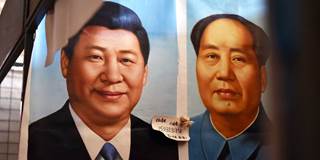For the last 40 years, China has implemented a national strategy that, despite its many twists and turns, has produced the economic and political juggernaut we see today. It would be reckless to assume, as many still do in the US, Europe, and elsewhere, that China’s transition to global preeminence will somehow simply implode, under the weight of the political and economic contradictions they believe to be inherent to the Chinese model.
NEW YORK – The West, by and large, has no idea what awaits it as China continues its rise. The United States, under President Donald Trump, has become a global laughingstock in less than a year. Europe, with the notable exception of French President Emmanuel Macron, remains a rolling seminar on itself, oblivious to its declining relevance to the rest of the world. And the less said about Britain’s collective act of national political and economic suicide in last year’s Brexit referendum, the better.
In short, the West has turned decisively inward, while China, breaking with its 3,000 years of dynastic history, has turned decisively outward, so that today few corners of the world are untouched by its influence. Deng Xiaoping’s maxim, “hide your strength, bide your time, and never take a lead” has already been dead for some years. The just-completed 19th National Congress of the Communist Party of China (CPC) was its state funeral. Xi is now proclaiming explicitly to his own people and the world that it is time for China to take center stage within the global order, and to create a new type of international relations.
So, beyond the pomp and ceremony of the 19th National Congress, it is crucial to understand what its outcomes will mean for China and the world.

NEW YORK – The West, by and large, has no idea what awaits it as China continues its rise. The United States, under President Donald Trump, has become a global laughingstock in less than a year. Europe, with the notable exception of French President Emmanuel Macron, remains a rolling seminar on itself, oblivious to its declining relevance to the rest of the world. And the less said about Britain’s collective act of national political and economic suicide in last year’s Brexit referendum, the better.
In short, the West has turned decisively inward, while China, breaking with its 3,000 years of dynastic history, has turned decisively outward, so that today few corners of the world are untouched by its influence. Deng Xiaoping’s maxim, “hide your strength, bide your time, and never take a lead” has already been dead for some years. The just-completed 19th National Congress of the Communist Party of China (CPC) was its state funeral. Xi is now proclaiming explicitly to his own people and the world that it is time for China to take center stage within the global order, and to create a new type of international relations.
So, beyond the pomp and ceremony of the 19th National Congress, it is crucial to understand what its outcomes will mean for China and the world.